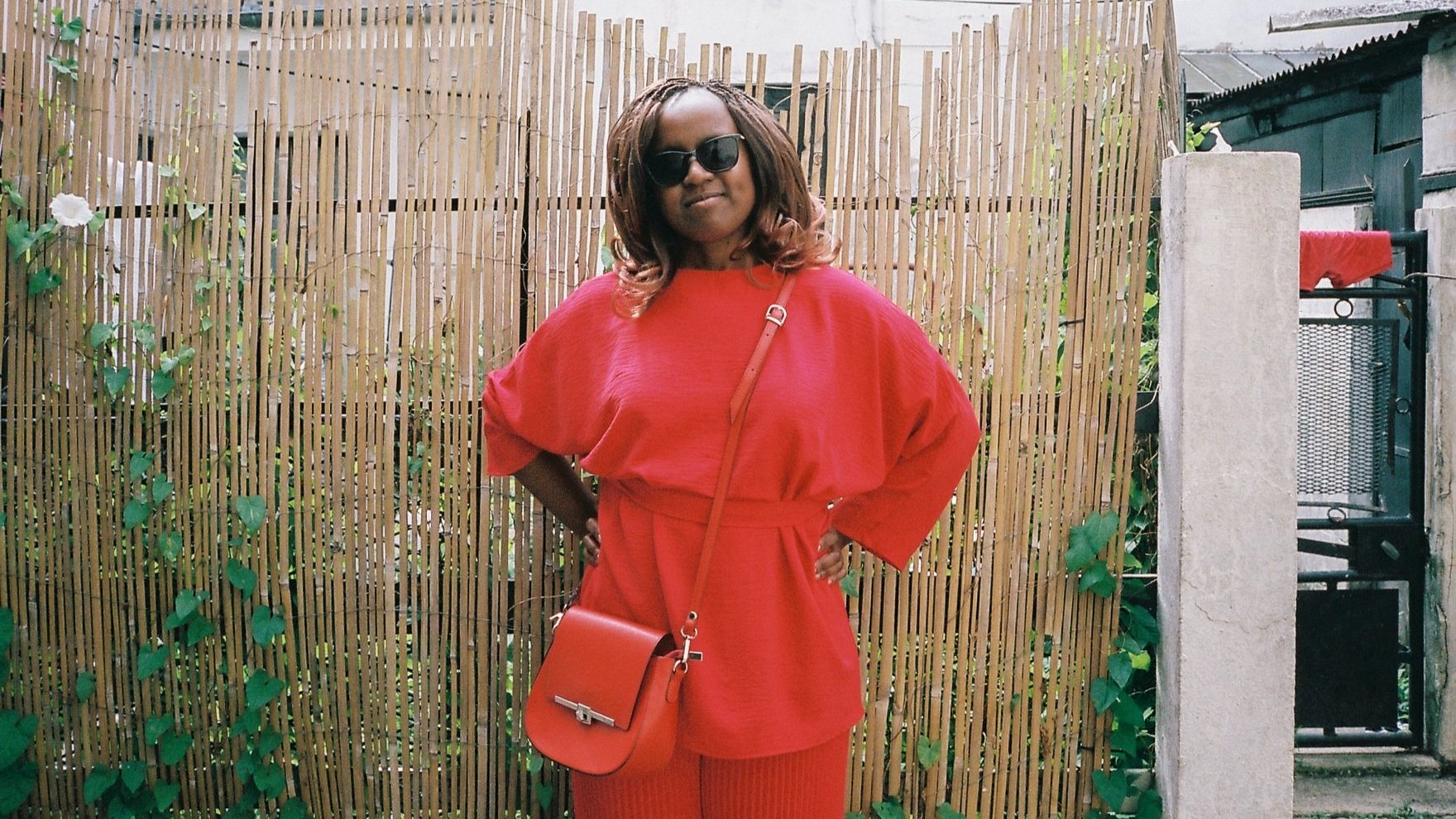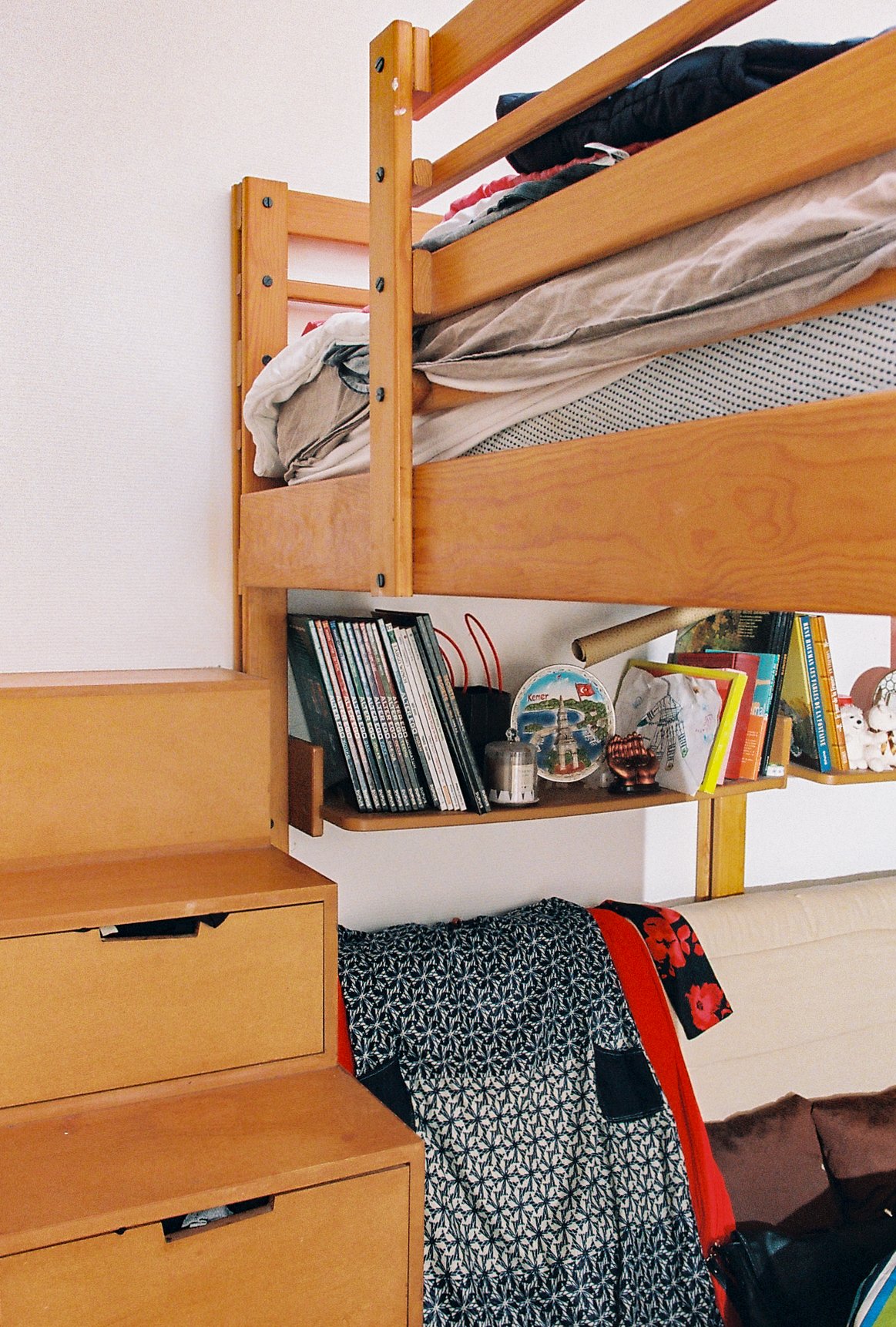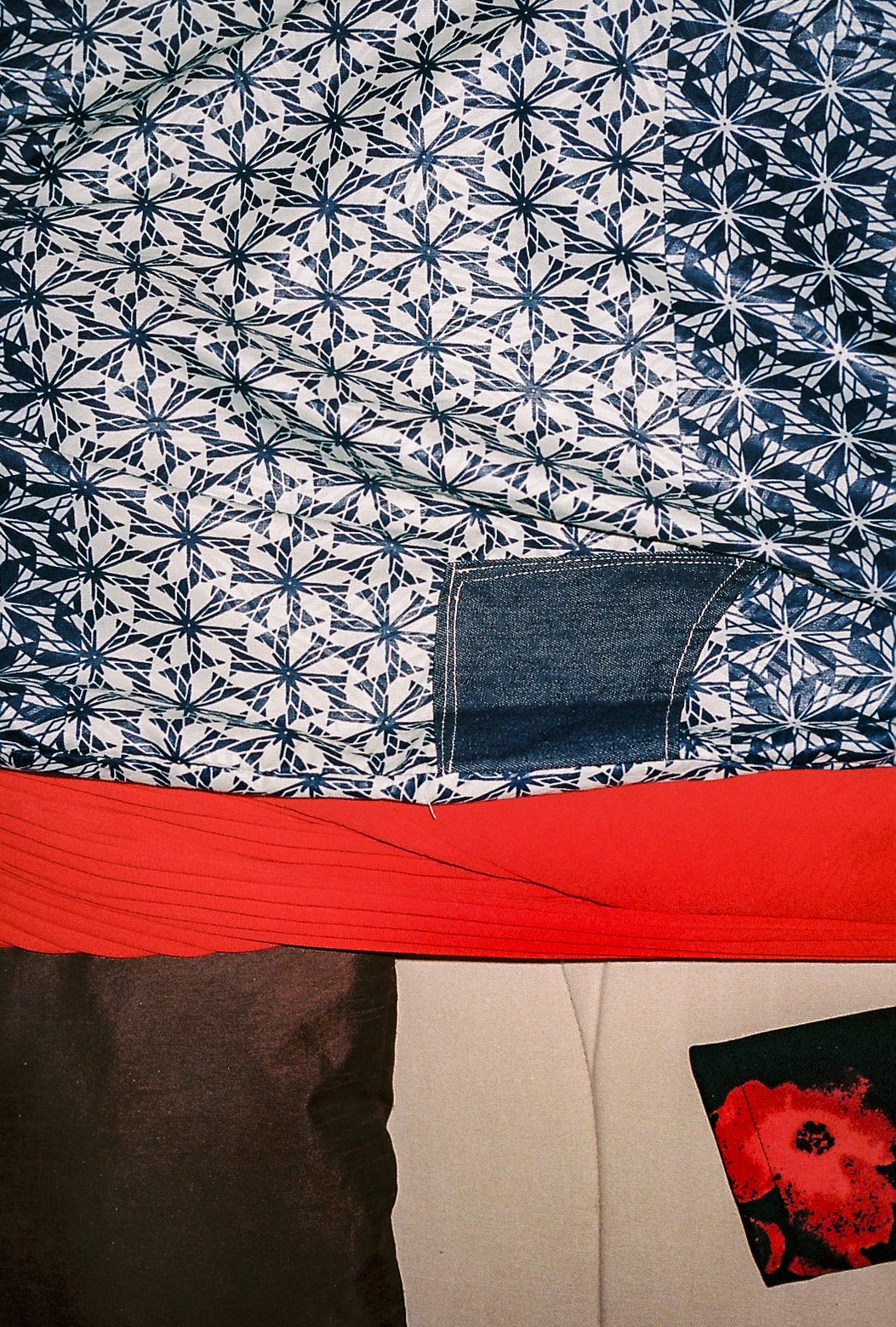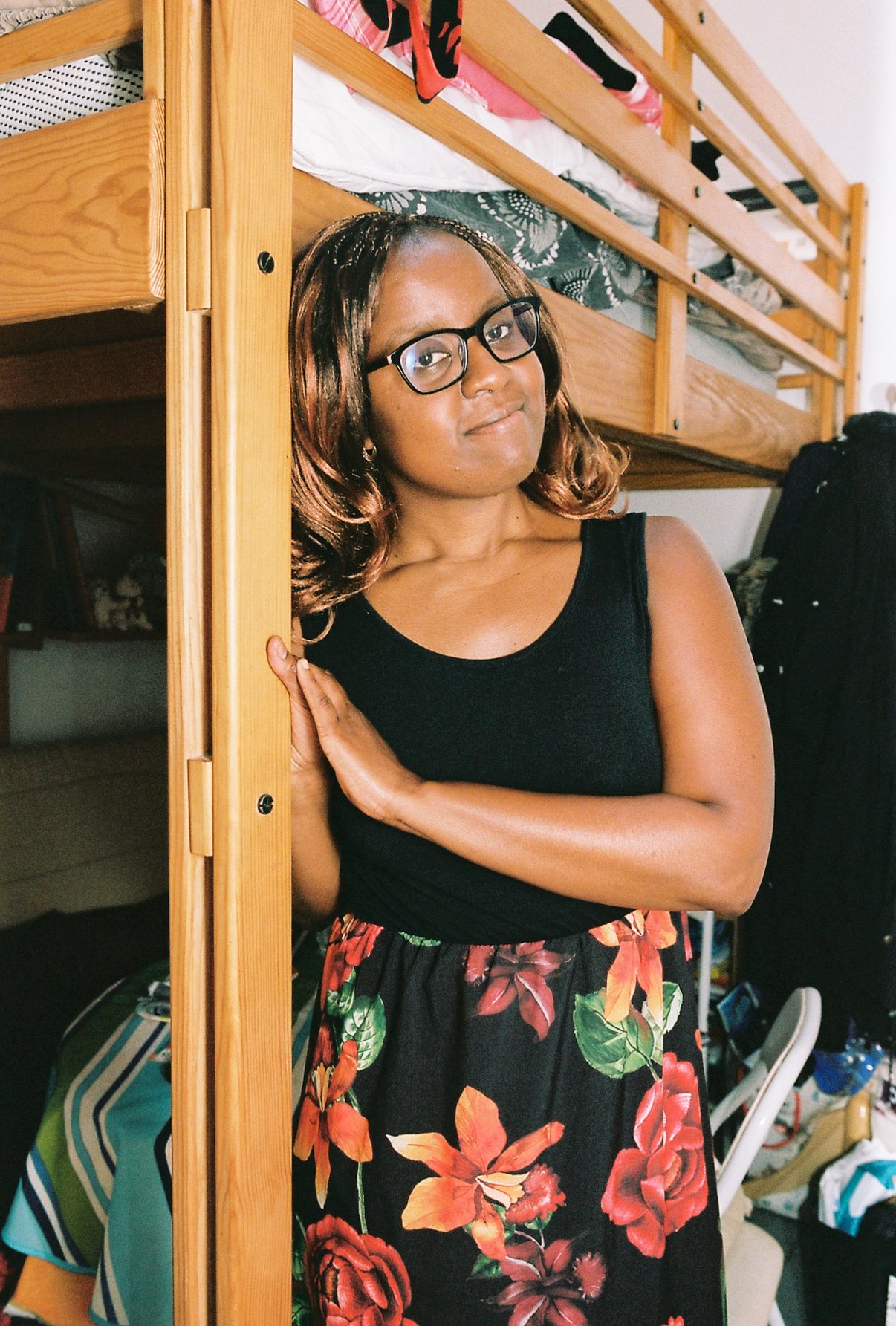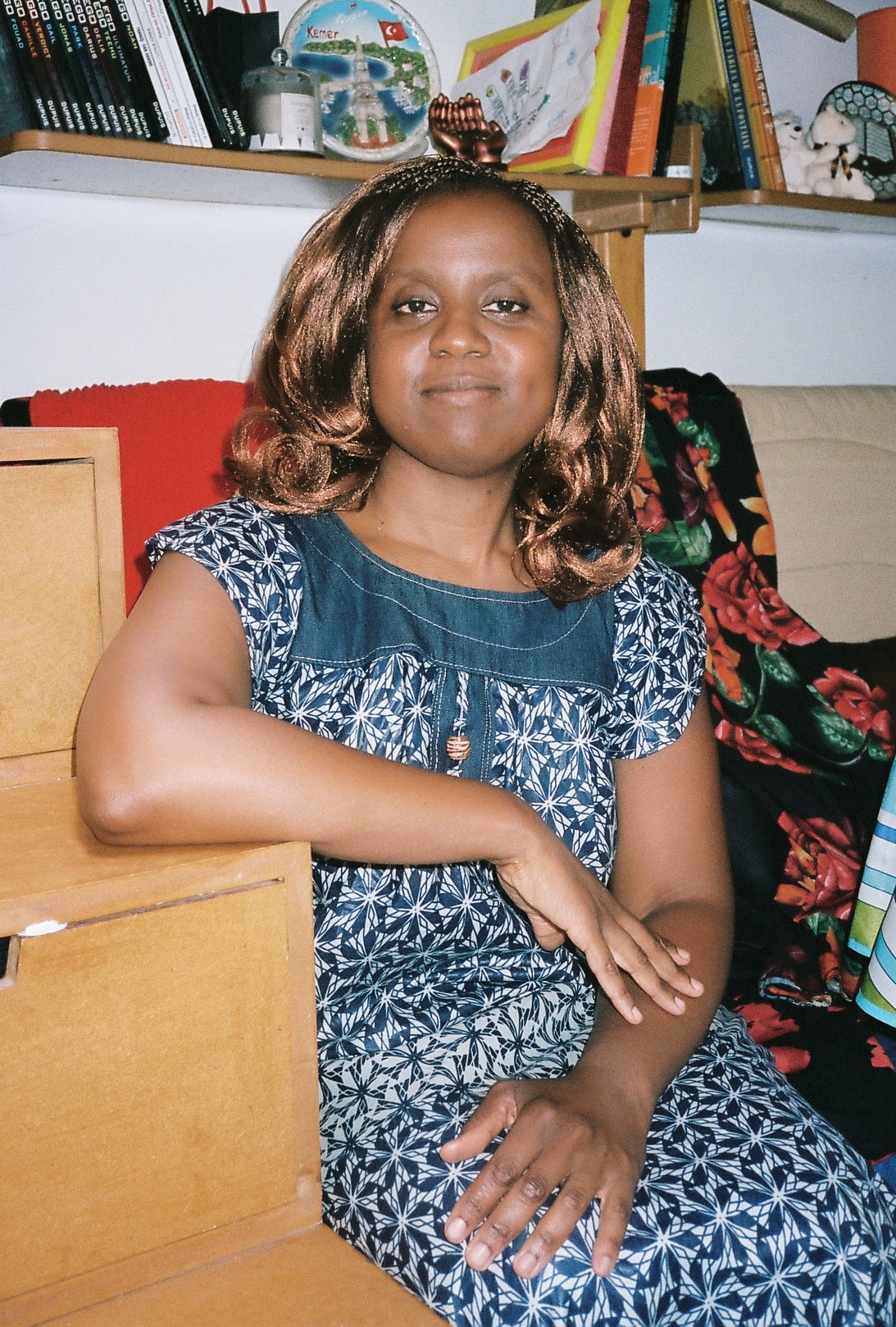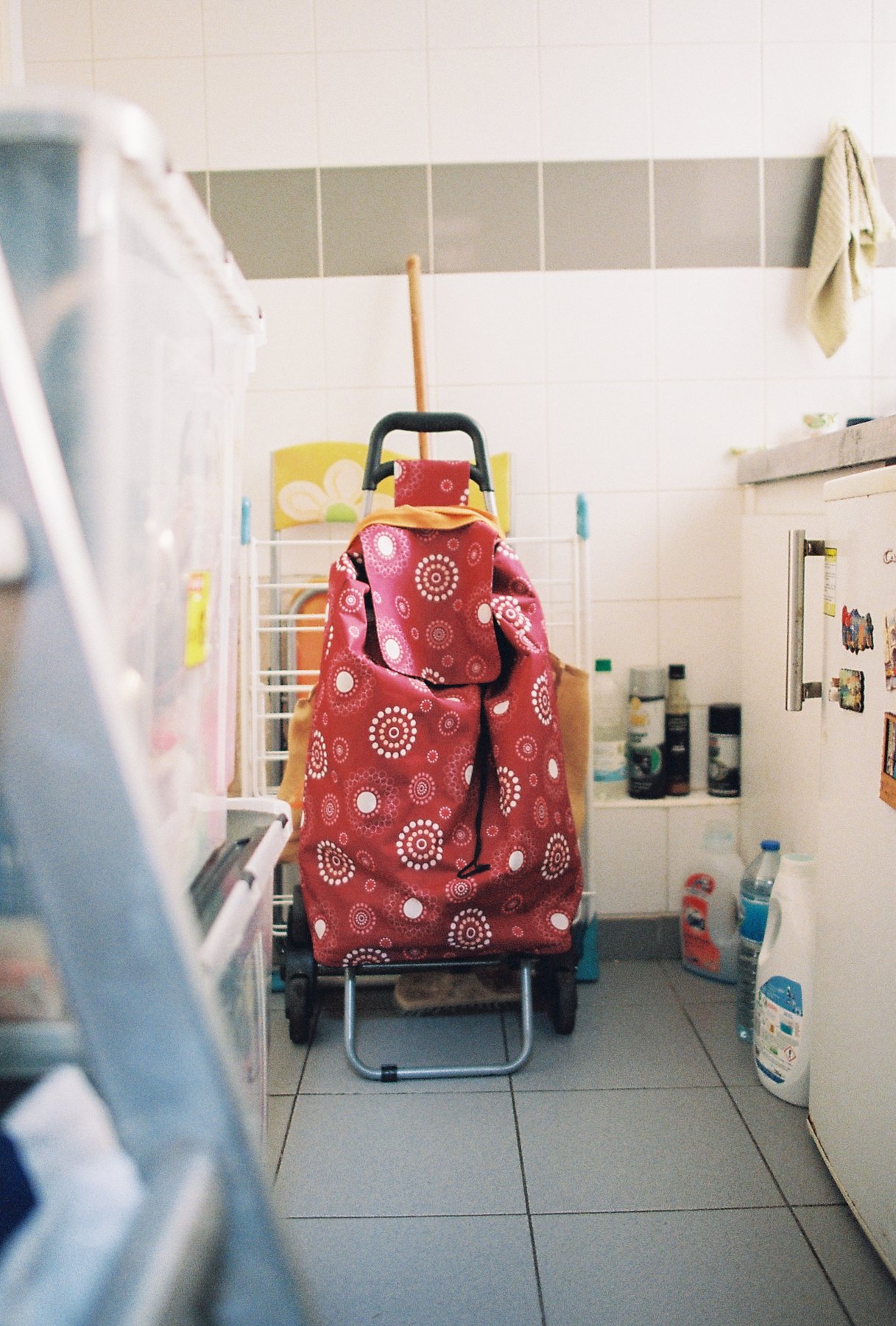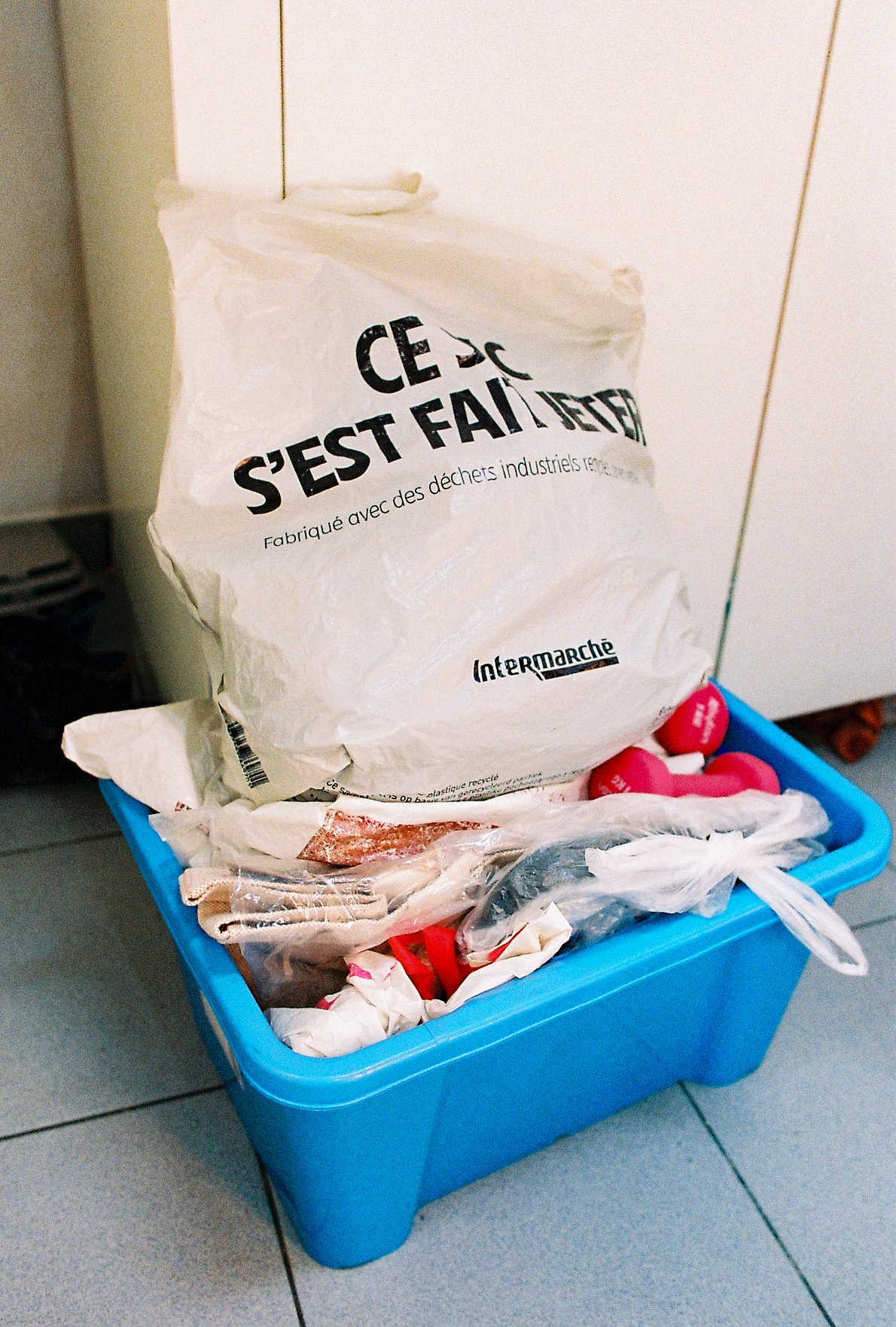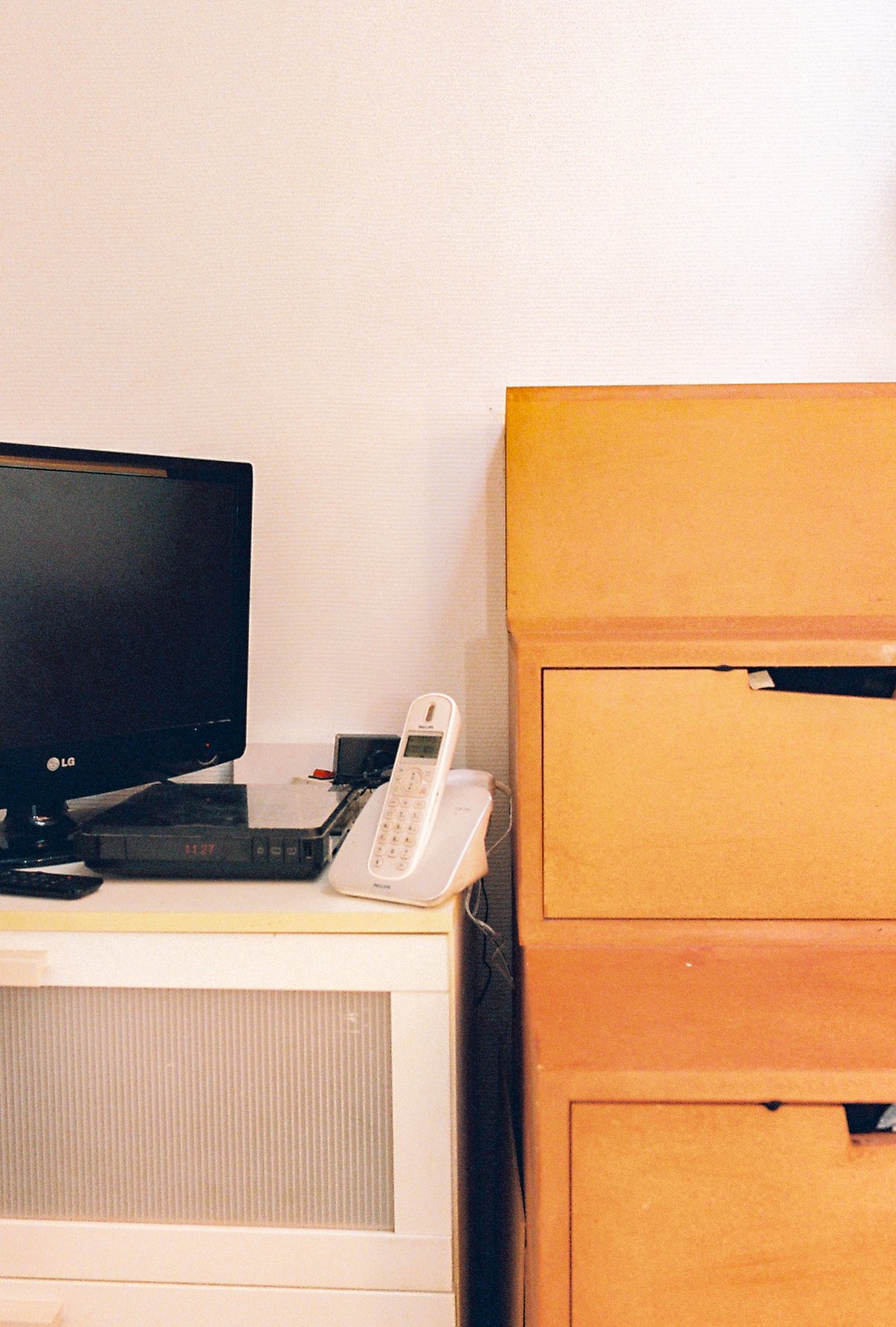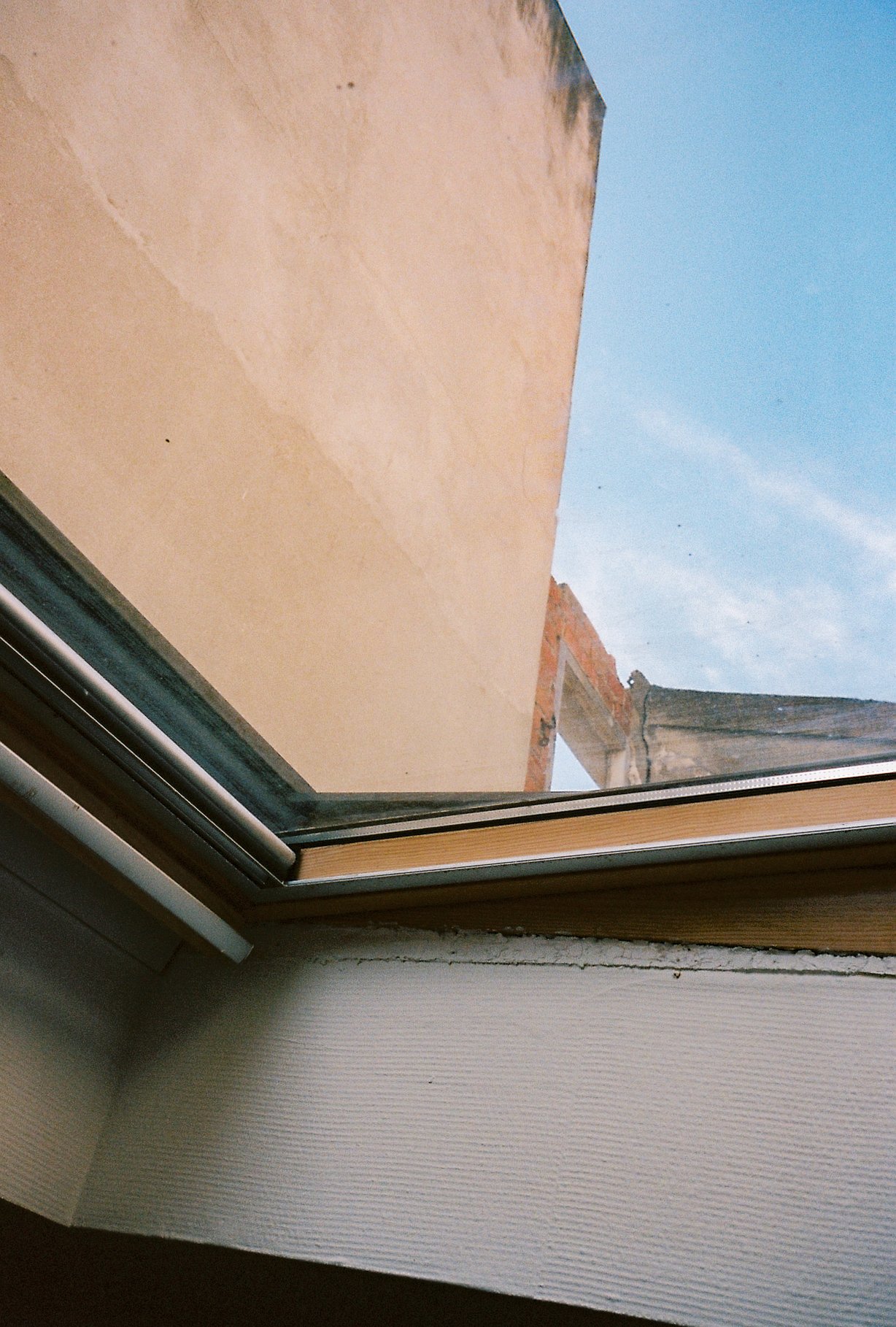Meet Siraba Coulibaly
You can find home aide Siraba Coulibaly traveling through Paris suburbs to see the beneficiaries she cares for or the auxiliary aides who work with her, or in the 19th arrondissement catching a movie (she doesn’t recommend The Trench, but liked the last Indiana Jones), or crossing paths with her friends in Leclerc. We borrowed some time from her busy schedule to chat about her self-made business, the shocking truths she has to face as someone who often cares for people near the ends of their lives, her favorite colors to wear to make her skin tone pop, and more.
♫ listen to siraba’s playlist | ⌨ siraba’s last google search
on her morning routine
I get up and get ready then I drink some tea, and I’ll have that with me until noon. I have a subscription to Color Theory Tea, a box of several teas. Then, I drive to work, so, it’s off to the traffic jams… On average, it’s a forty-five-minute commute. I listen to Les Grands Gueules in the car. I like them a lot because they debate relevant issues and choose interesting topics, and they have their columnists and other people call in. Also, I listen to music — Tropiques FM, Radio Latina, and Nostalgie too. I feel like the musicians from the ‘80s and ‘90s were way better, because what we have now…I don’t even know most of the artists. Sometimes my nephews tell me about them, and I say, “I have no idea.” When I go by Parc de la Villette and the Zenith, sometimes I see all the people there waiting in line, and I think, “What are they going to see?” They tell me the names, and I don’t recognize them.
on her path to caregiving
I was born in Lyon to a Senegalese mother and a Malian father. I have two brothers, a big brother, and a little brother. We’ve got two years between each of us. I’m the middle child. We grew up in a small town called La Mulatière. There were two elementary schools, one public school, and one private school.
I first wanted to work as a pediatric nurse, taking care of babies at the hospital. I changed jobs because of the tough things I discovered about the job… I was a little sensitive. I did my master’s degree in marketing and management in Lyon. Then, I worked at a publishing company in distribution for comic books. I stayed because I thought it was practical. I could exercise, on weekends I could travel, spend a weekend in Milan, or wherever, but it was hard for me to get up in the morning. After nine and a half years, I realized that I was bored at work, bored of the routine. I started thinking about what else I could do, and I noticed that I got along well with elderly people. I wanted a job where I felt useful, the kind of job that, when you get home, you say, “I helped someone.” I wanted to find a job with a purpose, so that’s what I started looking for, and then I found out that there are these agencies that help take care of elderly people.
““What’s surprised me is the solitude people experience. The distress… elderly people often suffer from solitude, especially during the lockdowns. They were happy that we continued coming to see them. Most of their kids didn’t go because they were afraid, since it was the early days of the pandemic. What also surprised me is all of their knowledge.””
on navigating her career shift
I chose to work with seniors. I trained over the course of two months with the two directors of this agency, and it was great to have their input and expertise. I’d gotten a contractual termination, so I had unemployment for two years. When you build your own business, they recommend you do it that way because since you’re not earning anything at the beginning, you still have the unemployment income. I had so many bosses back then, but I went to see the big boss, and said, “Look, I’d like to have a contractual termination because I want to build my own business.” Often, businesses accept when there’s a project behind the termination. A contractual termination is great because you have a right to the minimum allowance — sometimes the company gives you the minimum, but sometimes they give you a lot. I started seeking employment while I was leaving the other job. I gave notice in September and I left in December and I started working with seniors in June.
on her self-made business
I am the director of a home health aide agency. My job is to help elderly people and people with handicaps, or people who have limited autonomy, to find help at home. We can place one or a few health aides per person to help them with everyday tasks. This includes help washing, dressing, buying groceries, going out, and cleaning, or even people to keep them company. Occasionally, they’re people who don’t necessarily have issues with mobility but who feel lonely. In France, many elderly people feel lonely. Sometimes their children don’t live in the area, or they live in the area but don’t visit. We often work with people who have neurodegenerative illnesses like Alzheimer's, Parkinson’s, or Multiple Sclerosis, and they’re people who want to live at home as long as possible, and who don’t want to go to a nursing home. Sometimes their home situation is very dangerous, so you don’t have a choice, and you have to move them.
I have to be firm and fair. I have to be able to say when things aren’t working. For example, I’ve ended many contracts with families when I realized that the conditions weren’t safe in the person’s home. It’s really common for elders to have lost their ability to live safely, those with Alzheimer’s, for example. It can be very dangerous, they can go too far over the window ledge, or leave the gas on too long.
““From the start, you have to have empathy. For example, at our agency, we took care of a beneficiary who would call us in tears. They would say, ‘I don’t see my kids,’ and you can’t hang up on them. You have to listen to the person. They’re people who, whether they’re elderly or they have a handicap, need someone to talk to because no one listens to them. They can feel invisible.””
on the nitty gritty of her work
The average age of our beneficiaries is ninety, and the oldest beneficiary we currently have is ninety-eight. I’ve had beneficiaries over a hundred years old. They talk about the war often. They say that they didn’t eat, that they often suffered from hunger. After ninety years they’ve experienced so many eras, and they’re so philosophical and simple about it. I was just talking to the husband of a lady we visit, and when you see how young people complain all the time…they haven’t suffered at all in comparison to people who lived through all of that. And then, with people who have handicaps, people who really have a joie de vivre, who are happy despite their situation, often they feel disrespected because they say that they’re the most forgotten part of society. When [the government] comes out with these big national aid plans, they’re often left out, but, they’re people…
There’s a man we care for who has a case of multiple sclerosis. He has to stay in bed all day, but he never complains. He smiles, he’s happy in his bed. Another man has abscesses, but with him, his joy is Netflix. He knows everything that’s on Netflix, all the series, and he loves them. The last time I saw him, he was watching the Women’s World Cup. I said to him, “You’re not really into women playing soccer, are you? You said that they weren't that great.” He said, “Well, it’s interesting this year. The French team plays well.”
Among my colleagues, there are some who empathize with our clients and others who do the job because it’s a job. Sometimes we visit three times a day, seven days a week, and sometimes the clients want the same person to come, and I have to say that I can’t always send the same aide. In France, you can’t work all seven days of the week, so, we’ll have two or three people visit. There are agencies that have twenty or thirty people working with one beneficiary. You have to explain things twenty, thirty times to someone, or even show them what to do, especially because they’re elderly people, they have more of a sense of modesty than young people. In my agency, we assign five people maximum to one beneficiary.
““I did training in the field because I wanted to have a home aide certificate. I wanted to know how to wash and dress our beneficiaries in case there was an emergency, or I didn’t have any personnel who could go, and I needed to do the coverage myself. You just don’t leave someone alone, you help them. That also helped me see and intervene in day-to-day work because I understand the problems. If I were always at my desk and I never did the work myself, I wouldn’t know.””
on what she’s learned at work
That our lives hang by a thread, that it’s not a given that we’ll make it ‘til tomorrow. I’ve seen many elderly people, people who were really sick and thought that they wouldn’t make it through the year, and they suffer, but they’re still here. Others are in great health but suddenly have a heart attack. I’ve also learned that there are many people who are fed up with living. That shocked me, actually. They’re ninety, ninety-five years old and want to die. They’ve had enough, they say. It’s just too much time. I just let them talk. I had a lady, once, who told me — she was ninety — she said, “I’d have killed myself, but I don’t have anything to do it with.” She said, “Do you think life is really about spending all day on the couch?”
The older people get, the fewer people they have in their lives. All of their friends have died, their brothers, and sisters. They’ll tell me, “I want to die, I’ve done my time. I’ve lived well.” There are some who say, “I’ve done well with my kids, they’re successful, they’re comfortable, they’re happy, and I can go soon.” There was one man who would tell me all the time, “I’m so happy to have my son so close, he takes good care of me.” When he died, I told his son what he’d said to me. His son was so happy, he said, “Are you sure?” And I said, “Every time he got a chance, he’d say that.” It was the same with another lady. She had two kids who she’d raised alone, she said, “They’ve succeeded in life, they take good care of me, and I feel well looked after.” I say, “You’ve got to tell them!” I think people at that age are shy about those things. They’re of generations where you didn’t say “I love you” to your kids.
What really surprised me is how people think that kids don’t take care of their parents these days. From my perspective, they do, even those who don’t have time. The majority, even from families that don’t have a lot of money, stick together. The endings can be very tough for the kids when their parents die, or they’re not quite there anymore. When they see their parents like that…it’s hard for a kid to see. When the Alzheimer’s advances, for example, we tell the children to pay attention to certain things. Sometimes they just can’t see them. They hold on to their images of the past. They would rather not see their parents too often because it’s too painful to see them in that state, to see how they are now compared to how they were before. I have a lady who called me about her mother. She said, “I can’t do this anymore, I just can’t face this anymore, she’s completely lost her mind. She can’t remember anything.” Families frequently call me in tears.
““I think that we don’t often think about the position children are put in. For example, there are people who judge, saying, ‘Well, you put [your parents] in a nursing home.’ Yeah, but they took care of their parents, and not everyone has the capacity to do it themselves, to wash and dress them. There are many people who tell me that they just can’t. There’s somebody I work with who takes care of his mother. At first, he said, ‘I can’t do that, I’m embarrassed. I can do everything else, but I can’t wash her or change her.’ I told him, ‘I understand, but there’s going to be a time that you’ll need to know how to do it.’””
on her off days
On the weekends, I don’t work. That doesn’t mean that I don’t do anything related to work — I’ve still got a phone for emergencies, but weekends are weekends. When you start your business, you’re working all the time, it’s 24/7… you work 14, 15, 20 hours a day. I rest over the weekends. Sometimes I might work a little, process payments, do my books, and take care of administrative work in peace because I have the advantage of it being the weekend, but I never work on Saturday. Saturday is for going out. I go grocery shopping, and then I do things like go to the hammam [Turkish bath]. There, I like scrubs and rhassoul clay wraps. My favorite hammams in Paris are Mille Et Une Nuits and O’Kari. I enjoy doing the thalassotherapy [seawater treatments] treatments at the spa, too.
on what she’s reading
I love On the Island by Tracey Garvis Graves. It tells the story of a tutor who has to give classes to a rich young man. They end up on a plane that crashes on an island, and finally, they fall in love. It’s a great story. I also love the fairytales of Charles Perrault. When I was a kid, I preferred these to the Grimms’ stories. Lastly, the Rani series, about a brave woman and her many adventures.
on her beauty routine and personal style
It’s not like me to spend an hour putting makeup on — I’d never leave the house! I put my Yves Rocher Chamomile Day Cream on. Then I put on some foundation, a little powder, and that’s it. At the Makeup Forever counter at the mall, they said I should put on three different layers of powder. I said, “No. I don’t have time for that.” I have friends where I can see the time they spend contouring. Since I have dark skin, it also gets very dry, so I always use Nivea body cream. For my birthday, my friend wanted to get me something, and I realized I didn’t have any hand cream left, so I told her, “Why don’t you buy me some hand cream?” It’s Bioderma, their cream is great. It’s really hydrating. They make a shower oil that’s also great.
Right now, I’m wearing an African dress that I bought at a flea market from a woman who makes the clothes herself. I thought this dress was really pretty — It’s long, it’s loose-fitting, it’s soft. I also like this dress with flowers. It has these big roses on it, and the flowers make me happy. I’ve also got this red tunic from a mall by my place, where there used to be this boutique owned by a Chinese lady who sold really nice styles. She closed up shop because the dresses were on the expensive side. Since I have dark skin, I always say that I should wear colors that bring out my skin. I like pink, red…people notice when you’ve got a bright red tunic on.
siraba’s favorite spots in paris
I like to eat at Presto Fresco, get sweets and coffee at the Lindt store and Oh My Cake, shop at Naf Naf, and go out to Bizz’art and Le Réservoir Aux Cygnes.
interview and images by clémence polès, translated by anayvelyse allen-mossman, edited by em seely-katz

